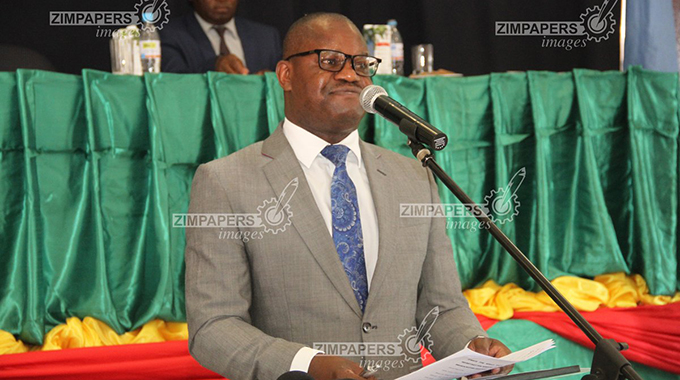One very odd Easter
Leroy Dzenga Features Writer
Easter holidays are more than just the first breather of the year. They are a significant date on the Christian calendar, a commemoration of the crucification and resurrection of Jesus Christ.
Jesus Christ forms the anchor on which Christianity – as a religion – stands.
Resultantly, his death and subsequent rise has been a reminder of the sacrifice associated with being of faith and an insignia of grace.
This significance has seen Easter being perhaps the biggest event on the Christian calendar.
Churches hold festivities in all their variations in reflection of this holiday.
Pentecostals take the conference route, indigenous churches host pilgrimages and mainline religious organisations have specifically crafted masses.
For all these churches, there has been a forced break in tradition.
Covid-19 and the regulations surrounding efforts to curtail the disease have inspired a change in tradition.
For the first time in many years, churches have had to celebrate Easter in their homes.
For their own safety of course!
Madzibaba Enoch of the Johane Masowe Nyenyedzinomwe Church said they had to forgo their usual large gatherings.
“We are celebrating Easter in our homes in line with what the President has decreed upon the country,” he said.
They have had to converge virtually.
“We created WhatsApp groups and I was invited in all those groups. I also gave people prayer lines especially related to Covid-19,” said Madzibaba Enoch. “At intervals we sang praise songs and sent them to the groups.
“On Easter Sunday we exchanged gifts as per our tradition, although we could not exchange material gifts, people sent money transfers to each other. This has been a long standing show of love which is done to signify Christ’s reawakening.”
As expected, convincing people who have been meeting annually without fail was not a stroll in the park.
“It has been very difficult to convince our church members to adjust to new conditions of worship,” said Madzibaba Enoch.
“When we announced, our members were hoping things would change for the better and we were going to gather.
“I had to gather church leaders to help communicate to members why we are taking this route.”
Although this has been an odd deviation from the normal way of doing things, there has been an unintended, but paradoxical outcome from the online approach.
“To my surprise, some congregants are saying the online groups are helping them interact with the church leadership more closely, something that was difficult in our usual church setting,” said Madzibaba Enoch.
Pentecostals have also modelled their Easter celebrations around internet connectivity.
Unlike their apostolic colleagues, they are live-streaming services.
For big congregations, it has been a good alternative, but for those who are starting out, the story has been slightly different.
Apostle Trevor King of Christ in Action International Ministries in Highfields, Harare, says the Covid-19 disturbance derailed his church’s plans.
“We had an Easter conference, but we have had to cancel it,” he said. “I had guests from South Africa and Kenya who were supposed to come grace us,” King said.
He said his membership was, in some instances, failing to consume his content due to data constraints.
“We have lost touch with our members, not everyone affords to join us for live sessions and they are losing out on sessions,” he said.
Beyond Easter itself, King is worried about his congregants if the global health crisis persists.
“Some of our members’ jobs are under threat, this is a problem for the ministry as some of them are partners and provide the financial assistance necessary to keep the church running,” he said.
Mainline churches have more financial wherewithal and are live-streaming their services and only a few critical congregants will be present.
The Roman Catholic, through their Radio Chiedza online platform, have been doing live streams of masses from as far back as Palm Sunday.
This is consistent with Pope Francis who cancelled his annual service at The Vatican.
Only online sessions have been held.
This has been the same case with traditional churches in the country; they have adopted long distance fellowship.
Seventh Day Adventist congregants, known for their upstanding faith, have this time devised ways to minimise human interaction.
“To promote social distancing and minimise the spread of the virus, members will worship privately in their homes,” SDA Church in Zimbabwe Pastor Micah Choga said in a statement.
“Necessary support in the form of livestreaming, downloading or printed worship packages and sermons will be availed to members through their pastors in order to facilitate similar worship and study themes for church members until the end of the lockdown.”
Besides being a religious holiday, families in Zimbabwe utilise Easter as a period to reconnect.
People travel to their rural areas to catch up with family and to deliver groceries.
This year, only those who left cities and towns before the lockdown were able to spend time with their families.
The rest are staying put as it is difficult to move around without a plausible reason.
The year 2020 has been difficult, it has seen a lot of compromises being made in the wake of Covid-19.
Zimbabweans in years to come will have to remember one weird Easter where they could neither fellowship nor hold family reunions.







Comments